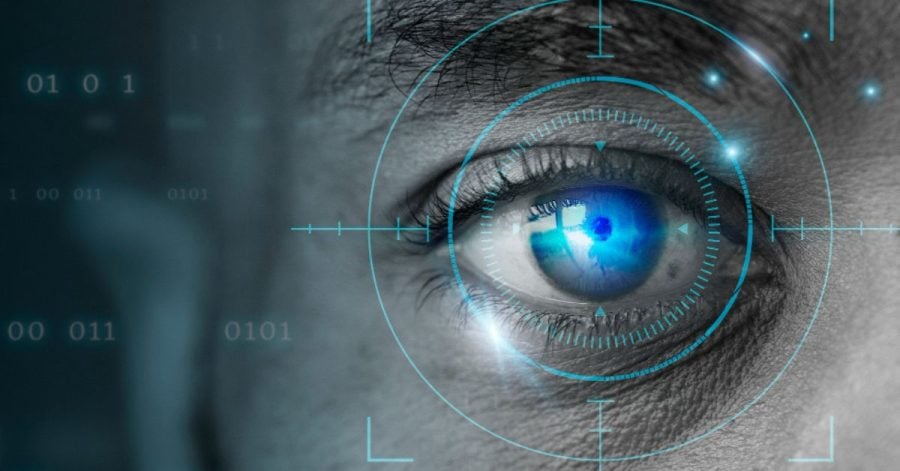In the digital age, our identities have become intertwined with the online world. From social media profiles to financial transactions and using public services, our digital identities and the subsequent digital identity trends now play a vital role in how we interact with others, conduct business, or pay bills.
For Konstantin Bezuhanov, CEO of Bulgarian digital identity and trust services provider Evrotrust, the adoption of digital identity is going to skyrocket as we continue to digitize the daily aspects of our lives.
“For the end users the name of the game is convenience. For the enterprises it is sales growth. Yet the speed of this change is going to depend on the acceptance by authorities and regulators. Luckily, in Europe we have been seeing a consistent effort over the years where the European Commission is leading the effort in revolutionizing digital identity and has predicted that 80% of the European population is likely going to use a Digital Identity Wallet by 2030,” Bezuhanov tells The Recursive.
However, with growing concerns over privacy, security, and data breaches, the future of digital identity is undergoing a transformative shift.
In this article we explore the emerging digital identity trends and technologies that are shaping the future of digital identity, highlighting the potential benefits and challenges that lie ahead for this critical digital segment of our lives.
Digital identity trends to keep an eye on
Decentralized Identity
One of the most promising developments in the field of digital identity is the rise of decentralized identity (DID). Unlike traditional identity systems that rely on centralized authorities, DIDs enable individuals to have full control over their personal data. Through the use of blockchain and distributed ledger technology, this digital identity trend provides enhanced privacy, security, and interoperability.
Users can create and manage their identities across multiple platforms, reducing the risk of data breaches and identity theft. Moreover, DIDs offer the potential for self-sovereign identity, empowering individuals to selectively share their information while maintaining control over their digital presence.
Biometric Authentication
Biometric authentication is another key trend that is revolutionizing digital identity. Biometrics, such as fingerprint, facial recognition, and iris scanning, offer a more secure and convenient way to authenticate individuals. The future of digital identity will likely see a widespread adoption of biometric authentication across various industries, from banking and e-commerce to healthcare and government services.
According to Igor Strejcek, managing director of Microblink, a Croatian company specialized in data extraction technology, it is becoming quite logical for physical documents to become obsolete over time and for this particular digital identity trend to take over – something that we have already witnessed with credit cards for example.
“This is quite logical, our technology is actually doing that process since we started with scanning physical documents, because these documents have to go digital – otherwise, it doesn’t make any sense. Having all these biometrics on cards, IDs, that is just the step to where you will have all your identity digitized. Actually, you will be even more authentic in the digital world than in the real world. Although I can see you and talk to you, I can’t really be sure, so probably the digital identity would prove that it is really you that I am talking to and not some impostor,” Strejcek tells The Recursive.
Biometrics provide a unique and immutable identifier, making it difficult for fraudsters to impersonate individuals. However, concerns over privacy and the potential for biometric data misuse need to be addressed through robust regulations and encryption standards, experts are adamant.
Zero-Knowledge Proofs and Privacy-Preserving Technologies
Privacy is a fundamental aspect of digital identity. As individuals generate vast amounts of data, protecting sensitive information becomes crucial. Zero-knowledge proofs (ZKPs) and privacy-preserving technologies offer a solution by allowing users to prove the authenticity of their data without revealing the actual information.
ZKPs enable verification of identity attributes, such as age or eligibility for certain services, without disclosing the underlying personal details. This cryptographic technique ensures privacy while maintaining the necessary level of trust in digital interactions. The future of digital identity will likely rely on such technologies to strike a balance between privacy and functionality.
Self-Sovereign Identity and Portable Reputation
Self-sovereign identity (SSI) empowers individuals with full control over their digital identities. SSI systems enable users to manage their personal data, control access, and verify credentials without relying on central authorities.
This concept introduces the idea of portable reputation, where individuals can carry their verified identities across different contexts and platforms. SSI has the potential to transform various sectors, including finance, healthcare, and education, by providing secure and portable digital credentials. However, interoperability and standardization challenges need to be overcome for widespread adoption and make this digital identity trend a reality.
Regulatory and Ethical Considerations
As the future of digital identity unfolds, it is essential to address the regulatory and ethical implications of these digital identity trends. Data protection laws, privacy regulations, and ethical frameworks must keep pace with the evolving landscape. Striking a balance between security, convenience, and privacy is crucial.
Additionally, the pace of this transition and the extent of its adoption will depend on a variety of factors, including technological advancements, regulatory environments, privacy considerations, and societal acceptance.
“Several countries have started experimenting with digital passports and IDs. For instance, the European Union has been working on a framework for a European Digital Identity Wallet that citizens could use across the EU for a range of public and private services. The use of digital IDs and passports like debit or credit cards is a logical extension of the ongoing digitization trend. We believe that ID verification and digital trust in general, should be something that happens with the least amount of friction, invisible in the background. This is the vision for digital identity in the long term,” Bezuhanov tells The Recursive.
Therefore, governments, organizations, and technology providers also need to collaborate to establish robust frameworks that safeguard individuals’ rights and ensure responsible use of personal data. Furthermore, transparency in data handling, informed consent, and user empowerment should be at the forefront of digital identity practices.
The future of digital identity holds immense promise for a secure, connected, and user-centric online world. However, it is crucial to address the regulatory and ethical considerations surrounding these advancements – and collaboration between governments, organizations, and technology providers is essential to establish robust frameworks that protect individuals’ rights and ensure responsible data use stemming from these digital identity trends.








